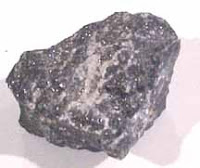THE NIGERIAN 34 SOLID MINERALS AT A GLANCE
Monday, June 21, 2010
Wednesday, June 9, 2010
Procedure for obtaining a Mining Licence in Nigeria
A grant of a Mining Licence to a prospective company is subject to proof of economic reserve of the mineral commodity for which a concession is sought. The process involves the company first applying to the Honourable Minister for Certificate of Entry into Mining Industry. The requirements for this include submission of the company’s Certificate of Registration, evidence of technical competence and of financial capability.
The next step is for the company to apply and obtain a prospecting right (PR) to enable it carry out general and scientific prospecting for the categories of minerals within the prospecting right. If properly conducted, work on this right will guide the company towards zeroing into a particular mineral within a specific land area.
The company will then put up application for an exclusive prospecting licence (EPL) in the State Mines Office where the mineral is located. This is an exploration licence for a particular mineral(s) over a particular land area which, by law, should not exceed 22 square kilometers. Once granted, the area is held exclusively to the company which will now confidently invest in mineral exploration work on the area without hindrance. This licence is renewable every one or two years depending on the nature of the terrain.
It is only after the company has satisfied itself of the availability of the mineral in commercial quantity on the EPL that it will apply for grant of a Mining Licence over the whole or part of the area covered by the EPL.
In the course of all these processes, the law insists that the company employs the services of a “technically competent person” in carrying out the prospecting under the PR, the exploration within the EPL and finally the extraction of the mineral within the mining licence area. This is necessary and to the advantage of the mining company if it is to reduce investment risks and reaps the maximum benefit from the investment.
Exportable Solid Minerals From Nigera
Talc
Over 40 million tonnes deposits of talc have been identified in Niger, Osun, Kogi, Ogun and Kaduna states. The Raw Materials Research and Development Council (RMRDC)’s 3,000 tonnes per annum catalytic plant is the only talc plant in the country. The talc industry represents one of the most versatile sectors of the industrial minerals of the world. The exploitation of the vast deposits would therefore satisfy local demand and that for export.
Gypsum
Gypsum is an important input for the production of cement. It is also used for the production of Plaster of Paris (P.O.P) and classroom chalks. A strategy for large-scale mining of gypsum used in the cement industries is urgently required to sustain the existing plants and meet the future expansion. Currently, cement production is put at 8 million tonnes per annum while the national requirement is 9.6 million tonnes. About one billion tonnes of gypsum deposits are spread over many states in Nigeria.
Iron Ore
There are over 3 billion metric tonnes of iron ore in deposits found in Kogi, Enugu and Niger States as well as the Federal Capital Territory. Iron Ore is being mined at Itakpe in Kogi State and is already being beneficiated, up to 67 per cent of iron. The Aladja and Ajaokuta Steel complexes are ready for consumers of billets and other iron products for down-stream industries.
Lead/Zinc
An estimated 10 million tonnes of lead/zinc veins are spread over eight states of Nigeria. Proven reserves in three prospects in the east-central area are 5 million tonnes. Joint venture partners are encouraged to develop and exploit the various lead/zinc deposits all over the country.

Bentonite and Baryte
These are the main constituents of the mud used in the drilling of all types of oil wells. The Nigerian baryte has specific gravity of about 4.3. Over 7.5 million tonnes of baryte have been identified in Taraba and Bauchi States. Large bentonite reserves of 700 million tonnes are available in many states of the federation ready for massive development and exploitation.
Gold
There are proven reserves of both alluvial and primary gold in the schist belt of Nigeria located in the south-western part of the country. The deposits are mainly alluvial and are currently being exploited on a small scale. Private investors are invited to stake concessions on these primary deposits.
Subscribe to:
Comments (Atom)








